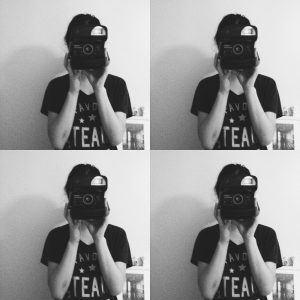晚上好 Good Evening everyone!
In my previous post and podcast we have discussed about whitewashing in films like The Great Wall (2016) and soon to be released Ghost in the Shell. Being a person of Chinese origin I am, to be honest really annoyed by it and I am not the only one being unsatisfied about casting choices.

#WhitewashedOUT
During the holidays, so right after The Great Wall came out in China whenever I typed in #whitewashing on Facebook and the first thing that came out was always The Great Wall. Social media’s reaction was turned on full powered, with netizens making memes, mocking Matt Damon’s casting choice.
Matt Damon showing up at the Great Wall like pic.twitter.com/vj0I8ap5i9
— Shaun | No, Totally! (@NoTotally) December 6, 2016
Maybe because of this huge social media pressure Matt Damon felt the need to explain and defend himself in numerous interviews of how he had not stolen the role from a Chinese actor. When I first heard the news and saw a title of an article, accusing The Great Wall of whitewashing I did not hesitate for second in retweeting and sharing it, as I believed in this accusation. I chose the word “believed’’ deliberately because I was clouded by other people’s judgment and in general just the exploding reaction on social media. However, after watching the film I do really want to bite my tongue and also blame myself for my naivety, being influenced so easily by social media. Matt Damon’s character is supposed to be a foreign mercenary who happened to stumble into this great war between the very brave and well-trained Chinese army and green-looking monsters. Therefore as Matt Damon argued, it is not actually whitewashed…
Because of the abundant amount of information we find on social media these days, I personally do not ask myself whether every information I read is truthful and actually never try to find out whether the facts are accurate or not. Sometimes when I am Facebook and read articles, I don’t even bother to actually click on the link to read the full script. Thus, my opinion on something is formed by only the first nine to ten words in the title, which are sometimes intentionally misleading or exaggerating.
Of course, a really convenient thing social media brings is the quick pace of how information are spread. On the day of Asian History month in the US. #whitewashedOUT was trending, having Asian-American actors and other people who supported the cause denouncing the lack of Asian representation in Hollywood films. The public took their anger of casting Tilda Swinton as the Tibetan monk Ancient One in Marvel’s Doctor Strange on Twitter. On that day #whitewashedOUT was trending with 60,000 appearances, starting with tweets from active whitewashing fighters Margeret Cho and writer Ellen Oh.
Yes. Racism is the norm. Racism is erasing us. #whitewashedOUT https://t.co/GHPMqvDHAf
— Margaret Cho (@margaretcho) May 3, 2016
Everytime a white actor takes an Asian part, a white writer writes an Asian story – we are being #whitewashedOUT
— Ellen Oh (@ElloEllenOh) May 3, 2016
The same backlash came from social media users after Scarlett Johnsson was cast as a Japanese anime character in the live-adaptation of Ghost in the Shell. Netizens were let down by the fact, that the opportunity for casting an Asian actress, and finally being represented just slipped by the easily. Nonetheless, Asian-Americans fought back making #starringjohncho trending on Twitter earlier last year. Korean-American actor John Cho, most famous for his role in Star Trek as Hikaru Sulu was photoshopped on film posters like The Martian, Me Before You, Jurassic World etc. replacing the initial Caucasian lead actors with John Cho.
What if Sarah and Joseph Rogers had adopted an Asian child and named him Steve? See the result. #StarringJohnCho pic.twitter.com/zDCrTNCbNO
— #StarringJohnCho (@starringjohncho) October 19, 2016
And I think because social platforms allows anyone to talk about any issues, such as whitewashing, it creates a pressure for film-makers and actors, which is why Matt Damon, Tilda Swinton and Rupert Sanders gave quick responses, in defending and trying to justify their work. Although these trending topics on Facebook or Twitter are very short-lived, social media creates a platform where angry Asians (or non-Asians) can release their dissatisfaction. Also with the reachability social media has it is a lot easier to reach out to other Asians that share the same opinion and fight for the same cause. Youtuber Phillip Wang from WongFu Productions spoke out about whitewashing, underlining and encouraging the fact that Youtube and social media in general, is a wonderful platform for potential content creators to publish their work.
It is especially important for (American)-Asians out there who have already accomplished and gained a certain status in the field of media, to speak up and to show and share their accomplishments. Their role is to create a bridge between Asians with the rest of the world and also amongst other Asians!
I have personally asked some Chinese friends on whitewashing in Hollywood films, curious to hear their opinions. My aunt told be when she went to watched Doctor Strange in the cinemas, she could automatically tell that Tilda Swinton’s character was supposed to be an Asian, even though she was unfamiliar with the originals comics. Her reaction was mostly confusion and generally “many question marks appeared’’ over her head, which was also general reactions and comments on Chinese film-rating websites. In comparison to some intense reaction from Asian-Americans, native Chinese people were more “relaxed’’ on that issue. I was quite surprised myself being a Swiss-Chinese, but my aunt explained that she “accepts’’ whitewashing in a way because the fact remains that Asians in Hollywood are of minority. Because, native Chinese viewers have their own films and television shows they do not really worry as much about whitewashing, as Asian-Americans. I think why I am so bothered by whitewashing is because I watch Caucasian-made contents and I am not able to find a reflection of myself in there or anyone who portrays myself accurately.
Colourism on social media…

With colourism again, I was surprised about how Chinese social media was reflecting this issue. As mentioned in my previous posts, there is absolutely no talk on colourism on social media platform like Weibo. However, after consulting my aunt again and my native Chinese friend from Hong Kong, they think the pressure of colourism comes more from society and societal standards. Indeed, my aunt feels more pressured by her friends, who want to attain “fair-beauty’’ than social media, advertisements or social media celebrities. Since everyone knows that advertisements are photoshopped and adding to that many celebrities obtain fair skin artificially people, the effect is not as realistic.
“Even though it’s very much obvious that all of them used filters to “photoshop” their features, it seems that the society is still crazing about this one-sided standard of beauty. Given these circumstances, it’s not hard to imagine that many of the ordinary people feel pressured into this kind of trend. That also explains, why whitening filters are most popular on Meipai’s affiliated photo editing app, Meitu.“ (German-born Chinese childhood friend of mine.)
Many of my readers, who are Caucasian were surprised after reading my blog, with the skin-whitening obsession in South-East Asia, as Westerners craze tanned skin. Also, some people were surprised that Hollywood blockbusters use Chinese or mention China just as a marketing strategy. My friend with the same cultural background as me assured me, that people will always put more weight on making profit with films and my aunt explained that colourism in Asian countries takes time to be recognised.
Throughout working on this blog I have realised one thing and that is the positive impact of social media. I see positive change in both issues due to the fact that netizens are speaking out. Therefore I believe in change if social media users tirelessly speak out their minds like I will do!
Actually starring Matt Damon in The Great Wall, was intentional. Chinese movie stars and directors agreed, that it was about time a mainly Chinese movie conquers Hollywood. So it is in fact an attempt to bring diversity on cinema screens around the world.
However I have to agree, that it is ridiculous, when westerners play Asian-rolls! Most of the time it just doesn’t fit and thereby decreases the quality and authenticity of the movie.
Yup…when I was watching the Great Wall it just felt really awkward…like personally it just felt so weird looking at him amongst all the Asian actors…:D and yeah it’s a co-production so, I don’t really expect anything haha